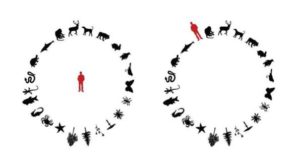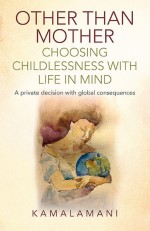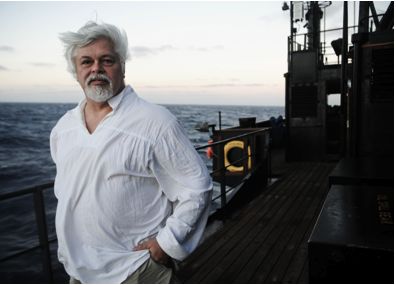One of my new heroes is Captain Paul Watson, activist and founder of the Sea Shepherd Conservation Society. Reading his recent commentary, “Human Lives Are Not More Important Than Animal Lives” in Outdoor Journal and then shortly after finishing the book, Other than Mother set off swirls of contemplation. Let me explain.
Biocentrism
In his piece, Watson gives direct and articulate criticism of how most humans look “on reality from an anthropocentric point of view,” or “the idea that all of reality, all of nature exists only for humanity, that we are the only species that matters and human rights take priority over the rights of all other species.”
This of course creates problems for all of nature, and Watson explains why it is a problem for humans as well. As he writes,
Nature has three very basic ecological laws.
- Diversity, meaning that the strength of an eco-system is determined by the diversity within it.
- Interdependence, meaning that the species within an eco-system are dependent upon each other, and
- Finite resources, meaning that there is a limit to growth, a limit to carrying capacity.
As human populations grow larger they literally steal carrying capacity from other species, leading to diminishment of other species which leads to diminishment of diversity and diminishment of interdependence.
And the law of interdependence tell us “that all species need each other and without some species we cannot survive.”
So by thinking we are the center of the universe, that we have the highest value as beings over all else in nature we are ultimately creating our own demise.
Reading his piece spurred these questions:
If more of us had a biocentric position – one that would purport that “human life is not more important than the life of a gorilla or a whale” would the human species more readily see that there are just too many of us? Would we as a species accept the logic of reducing and stabilizing our population for the survival of our own species as well as all others, and actually act on it?
What would it take to move people from anthropocentric to biocentric values? Why is the human species so prone to anthropocentrism in the first place, from a psychological point of view?
Buddhism
Then I finish the book, Other than Mother: Childlessness with Life in Mind: A Private Decision With Global Consequences. In 42 short chapters, therapist, writer and Buddhist Kamalamani gives readers a combination of memoir and guidance on the motherhood decision through a Buddhist lens.
Kamalamani explains that “an important emphasis in Buddhism is living with respect for all that lives and our environment.” It holds a do-no-harm position to all sentient beings. The book endeavors to help readers understand how their reproductive decisions affect all life on earth. Unlike many other books that examine the parenthood decision, Kamalamani emphasizes how this personal decision is a “global” one and has “global consequences.”
I finished Other Than Mother pondering and curious to pursue the question: How can Buddhist philosophy be integrated with discussions of reproductive ethics to solve the human overpopulation problem?
In chewing on the thinking of Watson and Kamalamani, it clicked that Buddhism is biocentric. I also realized how both Buddhist and biocentric points of view support ethical reproductive decision making in today’s world. Both support moving past pronatalist dogma and norms that exalt the role of parenthood, which includes telling us we all are supposed to want to have children, and if we don’t there is something wrong with us.
Both would seem to be against these kinds of beliefs – or more rightly, myths – because they mean bringing more people into the world, which means continued overpopulation of human beings, which ultimately means harm to the human species and other forms of life on the planet.
Starting with a new understanding of how biocentrism and Buddhism can help people make more conscious decisions about parenthood, onward I go to pursue the questions these readings have inspired~
What thoughts do you have on biocentrism, Buddhism and the parenthood decision?


Pronatalism has many insidious links. Narcissism, Biocentrism and the overvaluation of the Family are related.
The Family Mythology begins with primitive thinking and excessive self-importance. It encourages us to believe our genetic kin are essentially more worthy of love, attention and resources than non-kin people in the community. Why? Not because of their talent or noble characters, but simply because they share DNA ‘blood’. That is a highly narcissistic thought pattern.
The urge to reproduce our own DNA (rather than to Adopt, nurture or teach existing beings) is a selfish vanity.
Producing a child consumes many resources and usually ties parents into busyness, narrow absorption on the nuclear family, and Consumerism. Governments, churches and businesses love to encourage present excessive Growth at the expense of longer-term planetary moderation and balance.